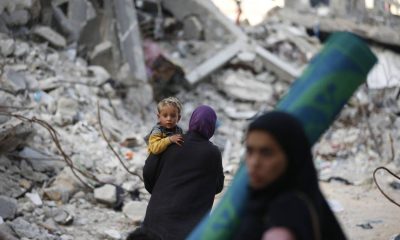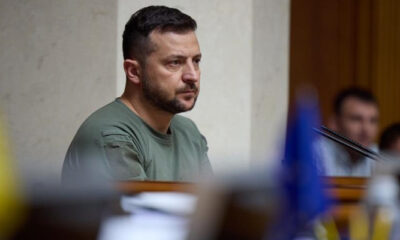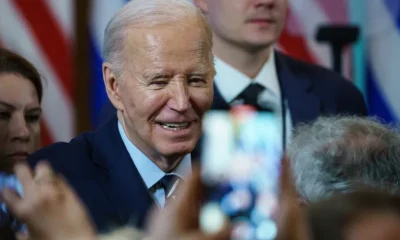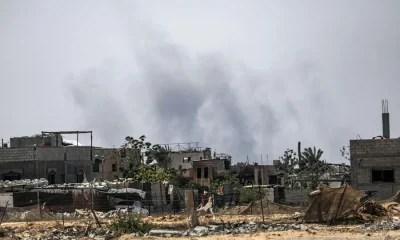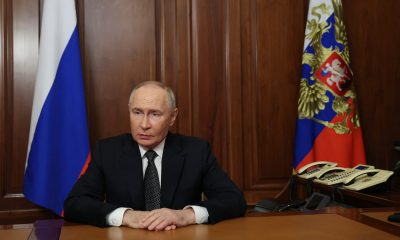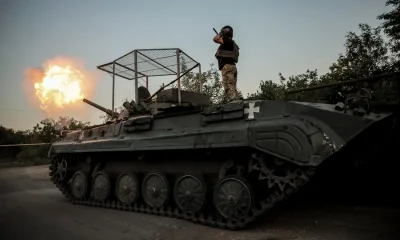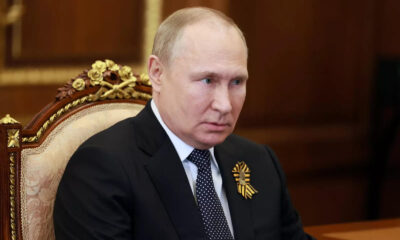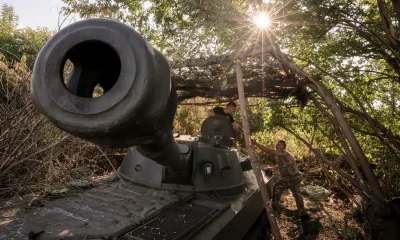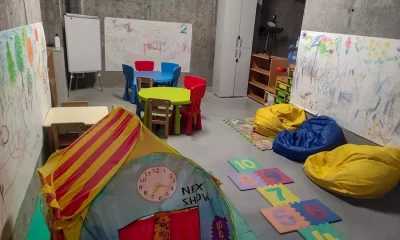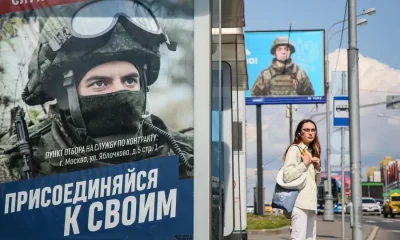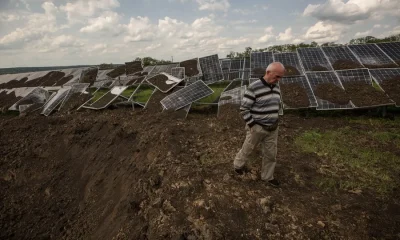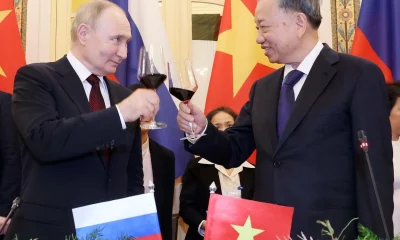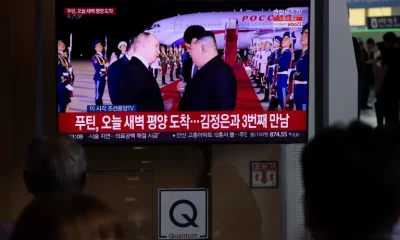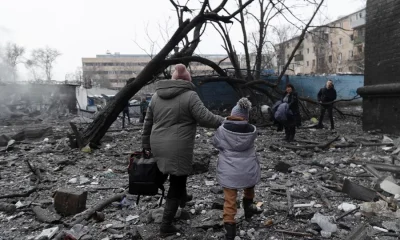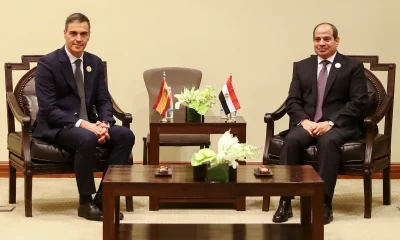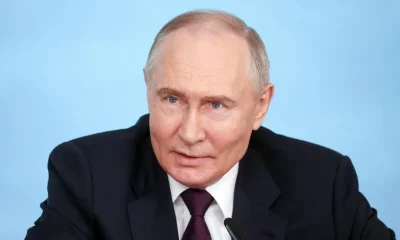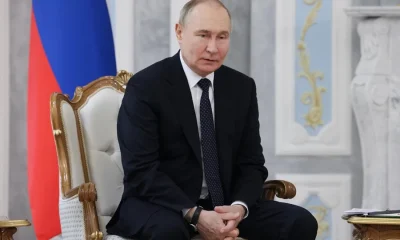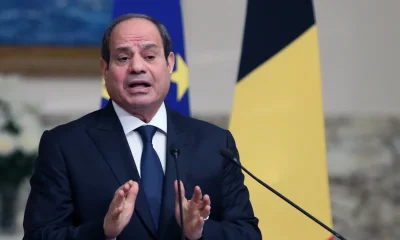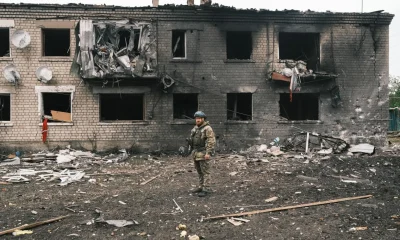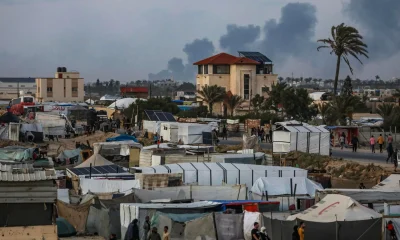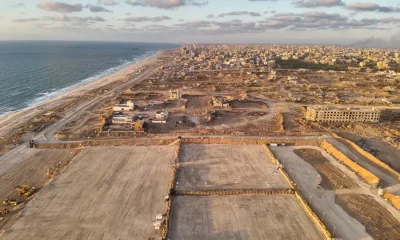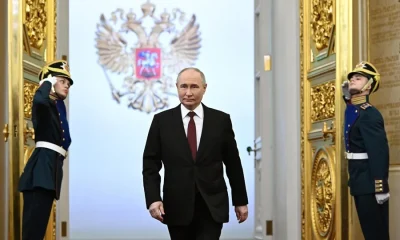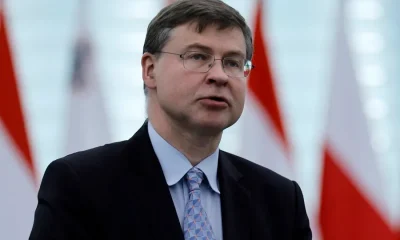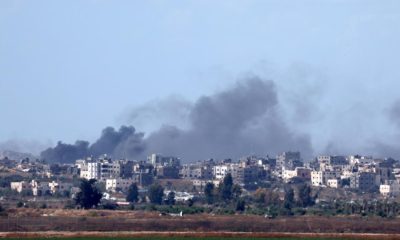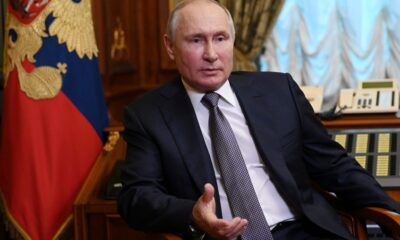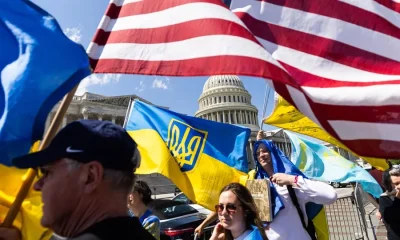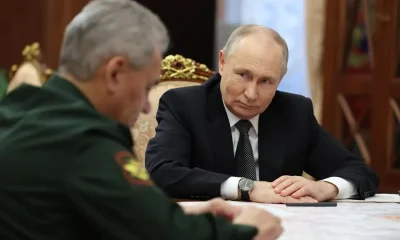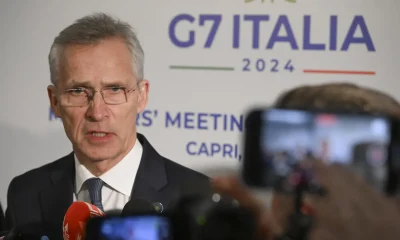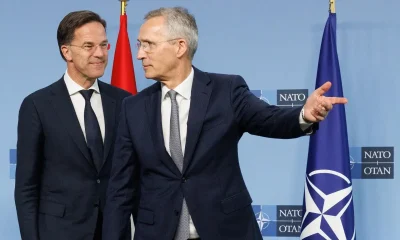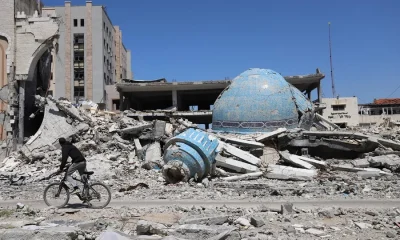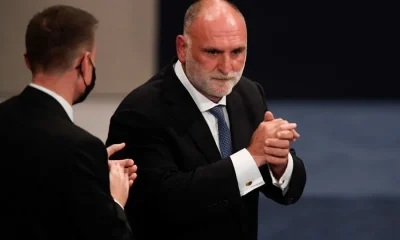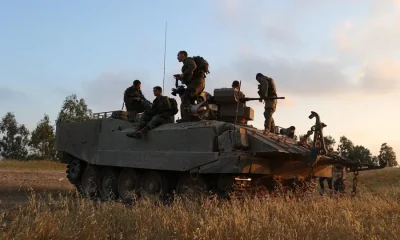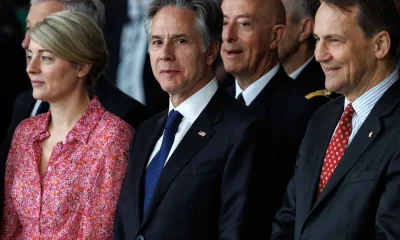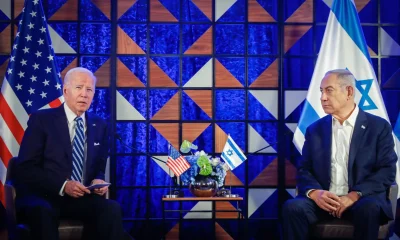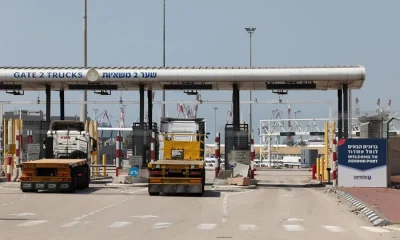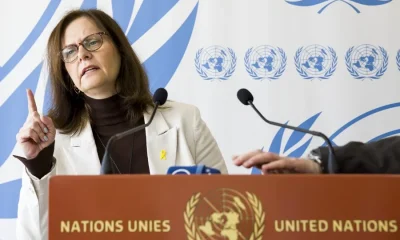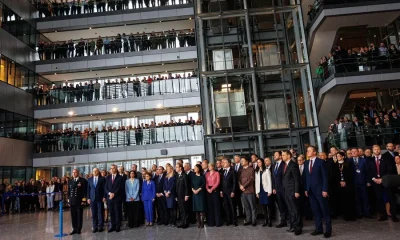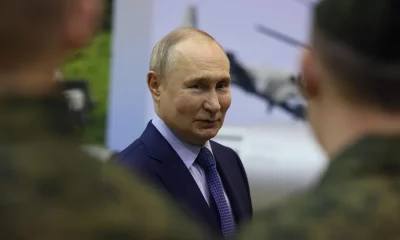International
How to end the wars in Ukraine and Gaza and 4 other global issues in which Xi and Putin coincide
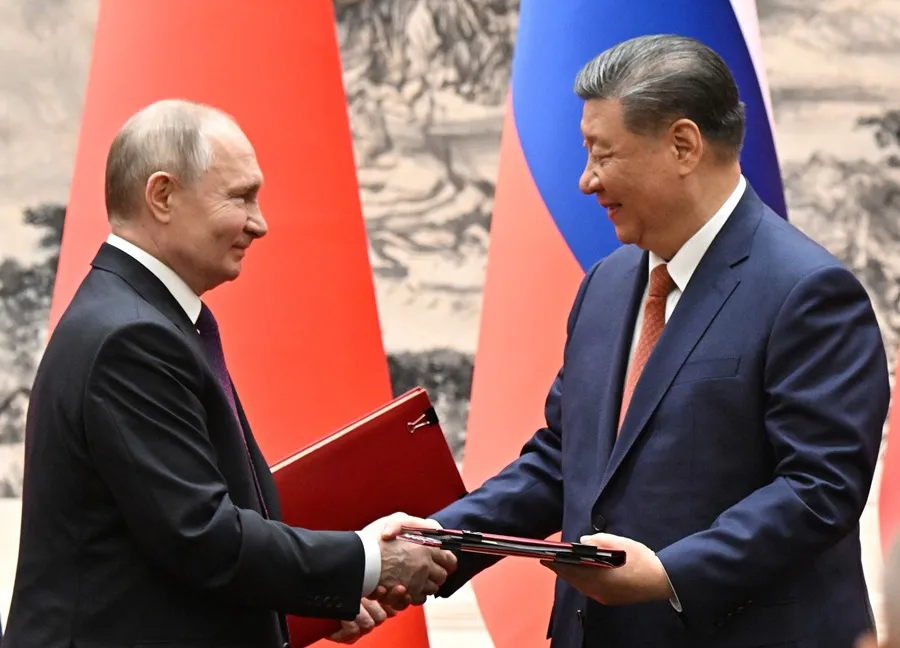
The leaders of China and Russia, Xi Jinping and Vladimir Putin, exhibited this Thursday in Beijing their consensus on global issues such as the conflicts in Ukraine and Gaza, multipolarity and trade, distancing themselves from Western positions.
Putin’s second visit to China in less than a year (and his first trip abroad after starting his fifth term) comes after last week Xi traveled for the first time in five to Europe, where the Chinese leader received new pressure to convince his Russian counterpart to stop his aggression against Ukraine.
In a statement after the meeting they held in Beijing, Xi assured that both parties “agree that a political solution to the ‘crisis’ in Ukraine is the right direction.”
Likewise, he reiterated point by point the position that Beijing has maintained in recent years, asking for “respect for the territorial integrity of all countries,” but also for the “legitimate security concerns of all parties,” in reference to Russia.
Xi’s words on the subject do not suggest that the Chinese leader could have pressured his counterpart to end the war during a meeting that occurred a day after Washington announced in Kiev an additional item of 2 billion dollars (about 1,837 million euros) to help Ukraine acquire weapons from the United States.
Xi declared that both parties consider it “extremely urgent” to find a way out of the situation in Palestine and that they support the “two-state solution” and the implementation of United Nations resolutions on this conflict.
Thus, the two heads of state have staged the coordination of their countries on this issue in scenarios such as the United Nations Security Council, where their representatives have voted similarly on the resolutions in this regard.
The Chinese leader boasted of the “strength” of the ties between Beijing and Moscow, which “have stood the test of the changing international panorama” and that will continue to consolidate to “defend justice in the world.”
The Chinese president recalled that he has met “more than forty times” with Putin, who defined relations between China and Russia as an “example of how links should be built between neighboring states.”
Both parties agreed to “promote multipolarity and globalization” and coordinate in institutions such as the United Nations or the G20 to “lead global management in the right direction.”
In February 2022, shortly before the start of the war in Ukraine, Xi and Putin proclaimed in Beijing a “friendship without limits” and, since then, they have defended that their relationship “advances the multipolarization of the world,” as opposed to American “hegemonism.”
Putin welcomed the expansion of bilateral trade, which “is reliably protected against the negative influence of third countries,” he said in reference to the Western sanctions against his country, criticized in recent years by Beijing for “not solving the problems.”
The Russian president also stressed that energy cooperation between Beijing and Moscow was addressed “in depth” during the meeting, a possible reference to the Power of Siberia 2 gas pipeline, designed to connect Russia and China through Mongolia and that, if completed, would divert 50 billion cubic meters of natural gas per year to northern China.
After surpassing Saudi Arabia, Russia has been China’s main source of oil since 2023, a trade that constitutes an important source of income for the Eurasian country, whose energy exports have been affected by Western sanctions.
In the midst of the American and European offensive against the Chinese automotive sector, Putin defended bilateral collaboration in this field and congratulated China on “a clear and very obvious success” in the sector.
The words of admiration of the Russian leader contrasted with the statements of US President Joe Biden, who recently accused Beijing of “cheating” in that industry and with the EU’s position, which announced a few months ago an investigation of the electric vehicle sector of the Asian giant for possible “illegal subsidies.”
International
Thousands rally nationwide against Trump’s threat to U.S. democracy

Thousands of protesters gathered on Saturday (April 19, 2025) in major cities like New York and Washington, as well as in small communities across the United States, in a second wave of demonstrations against President Donald Trump. The crowds denounced what they view as growing threats to the country’s democratic ideals.
In New York City, demonstrators of all ages rallied in front of the Public Library near Trump Tower, holding signs accusing the president of undermining democratic institutions and judicial independence.
Many protesters also criticized Trump’s hardline immigration policies, including mass deportations and raids targeting undocumented migrants.
“Democracy is in grave danger,” said Kathy Valyi, 73, the daughter of Holocaust survivors. She told AFP that the stories her parents shared about Adolf Hitler’s rise to power in 1930s Germany “are happening here now.”
In Washington, demonstrators voiced concern over what they see as Trump’s disregard for long-standing constitutional norms, such as the right to due process.
International
ACLU seeks emergency court order to stop venezuelan deportations under Wartime Law

The American Civil Liberties Union (ACLU) on Friday asked two federal judges to block the U.S. government under President Donald Trump from deporting any Venezuelan nationals detained in North Texas under a rarely used 18th-century wartime law, arguing that immigration officials appear to be moving forward with deportations despite Supreme Court-imposed limitations.
The ACLU has already filed lawsuits to stop the deportation of two Venezuelan men held at the Bluebonnet Detention Center, challenging the application of the Alien Enemies Act of 1798. The organization is now seeking a broader court order that would prevent the deportation of any immigrant in the region under that law.
In an emergency filing early Friday, the ACLU warned that immigration authorities were accusing other Venezuelan detainees of being members of the Tren de Aragua, a transnational criminal gang. These accusations, the ACLU argues, are being used to justify deportations under the wartime statute.
The Alien Enemies Act has only been invoked three times in U.S. history — most notably during World War II to detain Japanese-American civilians in internment camps. The Trump administration has claimed the law allows them to swiftly remove individuals identified as gang members, regardless of their immigration status.
The ACLU, together with Democracy Forward, filed legal actions aiming to suspend all deportations carried out under the law. Although the U.S. Supreme Court recently allowed deportations to resume, it unanimously ruled that they could only proceed if detainees are given a chance to present their cases in court and are granted “a reasonable amount of time” to challenge their pending removal.
International
Dominican ‘False Hero’ Arrested for Faking Role in Nightclub Collapse That Killed 231

A man identified as Rafael Rosario Mota falsely claimed to have rescued 12 people from the collapse of the Jet Set nightclub in Santo Domingo—a tragedy that left 231 people dead—but he was never at the scene.
Intelligence agents in the Dominican Republic arrested the 32-year-old man for pretending to be a hero who saved lives during the catastrophic incident, authorities announced.
Rosario Mota had been charging for media interviews in which he falsely claimed to have pulled survivors from the rubble after the nightclub’s roof collapsed in the early hours of April 8, during a concert by merengue singer Rubby Pérez, who was among those killed.
“He was never at the scene of the tragedy,” the police stated. The arrest took place just after he finished another interview on a digital platform, where he repeated his fabricated story in exchange for money as part of a “media tour” filled with manipulated information and invented testimonies.
“False hero!” read a message shared on the police force’s Instagram account alongside a short video of the suspect, in which he apologized: “I did it because I was paid. I ask forgiveness from the public and the authorities.”
-

 Central America5 days ago
Central America5 days agoPetro questions Ecuador’s vote, cites reports of military control and arrests
-

 International4 days ago
International4 days agoArsenal stun Real Madrid at the Bernabéu to reach Champions League semifinals
-

 International3 days ago
International3 days agoDominican ‘False Hero’ Arrested for Faking Role in Nightclub Collapse That Killed 231
-

 Central America3 days ago
Central America3 days agoNicaraguan Exiles to Mark 7th Anniversary of 2018 Protests with Global Commemorations
-

 International4 days ago
International4 days agoBogotá residents line up for yellow fever vaccine amid national alert
-

 International2 days ago
International2 days agoACLU seeks emergency court order to stop venezuelan deportations under Wartime Law
-

 International4 days ago
International4 days agoDeSantis’ immigration crackdown sparks alarm in Venezuelan Communities in Doral
-

 Central America2 days ago
Central America2 days agoUN complaint filed against Costa Rica over detention of migrant children
-

 International4 days ago
International4 days agoMexico refuses to restore ties with Ecuador while Noboa remains in office
-

 International15 hours ago
International15 hours agoThousands rally nationwide against Trump’s threat to U.S. democracy
-

 International5 days ago
International5 days agoColombia: Search continues for missing limb of italian scientist found dismembered














